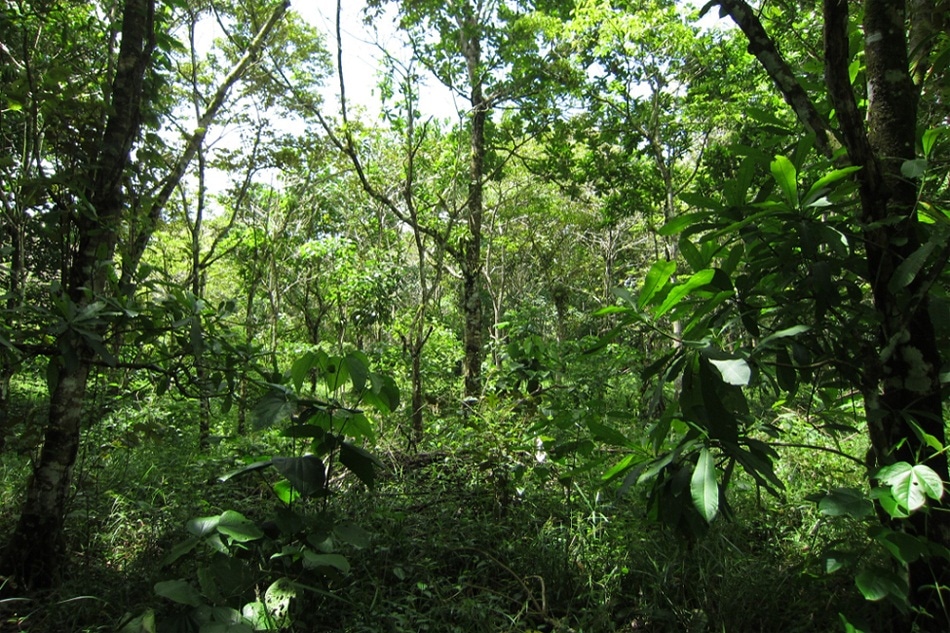Sep 6 2019
According to researchers at the University of Freiburg, forests that have a large diversity of species are more stable and productive when compared to monocultures.
 A mixture of five tree species on a Sardinilla experiment field. (Image credit: Florian Schnabel)
A mixture of five tree species on a Sardinilla experiment field. (Image credit: Florian Schnabel)
This finding was confirmed with the data obtained from the world’s oldest field trial conducted on the variety of tropical tree species. The research team that works under PhD student Florian Schnabel has reported the results in the journal Global Change Biology.
As stated by the scientists, there is growing scientific evidence that positive associations exist between the functioning of ecosystems and the diversity of tree species. But, so far, a majority of the studies on this association have utilized data obtained from young planted experiments that do not offer information on prolonged time periods, or from forests where the effect of biodiversity cannot be isolated from other factors.
Hence, the Freiburg research group examined the data obtained from the Sardinilla experiment performed in Panama in 2001. This experiment spans 22 plots in which one, two, three, or five native tree species were planted.
Since the growth rates are different for individual species, the plots that have more diversity of species also have more structural diversity with respect to the trees’ diameter and height. Yearly data on the height and size of the trees, which are perceived as indicators of the stability and productivity of the ecosystem, stem from the 2006–2016 period.
The research deduced that on average, a combination of two and three tree species have 25% to 30% higher productivity when compared to monocultures, and those with five species have as much as 50% higher. El Niño, the tropical climate phenomenon, also caused variations during a severe dry period and these differences were particularly pronounced.
This suggests that forests that have more varieties of tree species are more productive and also more resilient and stable under severe drought conditions, which according to the scientists is a major discovery considering current global climate change. In the context of initiatives that focus to cut down atmospheric CO2 with widespread reforestation, these outcomes suggest that relatively less space is required in the case of mixed-species forests to store the same amount of CO2 in biomass.
The researchers stated that these outcomes provide a new perception about the dynamics of tropical plantation forests and underscore the significance of analyses covering an extended development period. This is because they provide a deeper understanding of the relationships that exist between the diversity, stability, and productivity of ecosystems.
The work is based on the master thesis of Florian Schnabel who will receive the Hansjürg-Steinlin prize—a University of Freiburg award for new talent—in October at the beginning of the 2019/20 academic year. Currently, Florian Schnabel is a PhD student working on the TreeDì project at the German Centre for Integrative Biodiversity Research (iDiv) in Leipzig.